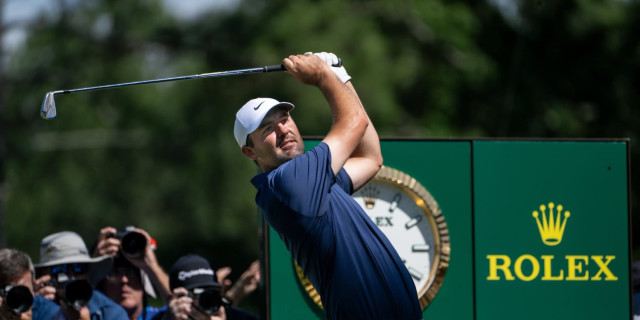
Brief History of the US PGA Championship
RICH BEEM, Shaun Micheel, Wayne Grady and John Mahaffey were hardly household names or prolific tournament winners, but they all have one thing in common - they won the US PGA Championship, which until 2019 was traditionally the final major of the season, played in the middle of August.
Because of the extraordinary circumstances in which we now find ourselves, this time it will be the first major of 2020. Traditionally known as Glory’s Last Shot precisely because it was the final major of the season, winners of the tournament know that success there will change their lives forever. For a start, it gains them access to The Masters, US Open and Open Championship, as well as the Players Championship for five years. It is the only one of the four majors that does not feature any amateurs in the field.
In February 1916, the Professional Golfers Association of America was established and the first PGA Championship was held later that year at Siwanoy Country Club in New York. The winner, Jim Barnes, received $500, and a diamond-studded gold medal donated by businessman Rodman Wanamaker. The winner at Harding Park will receive almost $2m and the Wanamaker Trophy.
The PGA Championship was established for the purpose of providing a high-profile tournament specifically for professional golfers at a time when they were generally not held in high esteem in a sport that was largely run by wealthy amateurs.
Initially a matchplay tournament, the PGA Championship was originally played in early autumn but after the Second World War it moved to May or June. It was common for the winner to have to play in the region of 200 holes over the course of the week - this was a proper endurance test and it failed to capture the imagination of the public. In 1958 it became a traditional 72-hole stroke play event following pressure from broadcasters, for whom a matchplay event held little appeal.
During the 1960s, the PGA Championship was played the week after The Open on five occasions, making it virtually impossible for players to compete in both majors. In 1953, Ben Hogan famously won The Masters, US Open and Open Championship. He would probably have won the PGA Championship as well but was unable to do so because, incredibly, the two events overlapped.
In 1965 it was finally moved to August. And there it remained apart from 1971, when it was played in Florida in February, and 2016, when it was staged two weeks after The Open to accommodate the Olympic Games.
Before the 2017 edition, it was announced that the PGA Championship would be moved to May in 2019. The PGA Tour announced that it would move the Players Championship to March.
The tournament is primarily played in the eastern half of the United States; only 10 times has it ventured west.
The impressive Wanamaker Trophy stands nearly 2.5 feet tall and weighs 27 pounds. The trophy was lost for a few years until it showed up in 1930 in the cellar of L.A. Young and Company. Ironically, this cellar was in the factory which made the clubs for the man responsible for losing it, Walter Hagen, who claimed to have trusted a taxi driver with the trophy, but it never returned to his hotel.
The PGA Championship is the only major that does not officially grant entry to the top 50 players in the world rankings although it invariably invites all of the top 100, which actually means that it usually boasts the strongest field of any of the majors.
About the author

Derek Clements is a seasoned sports journalist and regular Golfshake contributor, specialising in tour coverage, opinion pieces, and feature writing. With a long career in national newspapers and golf media, he has reported on the game across Europe, the United States and Australia. A passionate golfer, he has played and reviewed numerous renowned courses, with personal favourites including Pebble Beach, Kingsbarns, Aldeburgh, Old Thorns and the K Club. His love of the game informs his thoughtful commentary on both professional golf and the wider golfing community.

Be part of the action with a selection of unique golf tournament experiences, from playing in a pro-am with the stars to watching the action at golf’s most illustrious events. Whether it’s the Masters or The Open, The Ryder Cup or WM Phoenix Open, build your own bespoke package with the experts at Golfbreaks.com.










